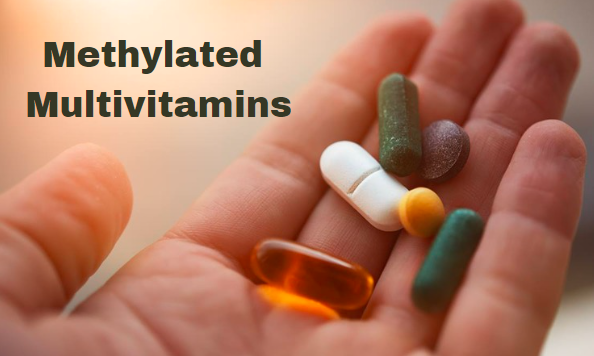In the realm of nutritional supplements, methylated multivitamins have emerged as a crucial solution for individuals seeking optimal health.
This comprehensive guide delves into the unique benefits, underlying science, and practical considerations of incorporating methylated multivitamins into your daily regimen. With a focus on providing in-depth insights and addressing common queries, this article aims to serve as a definitive resource on the subject.
Understanding Methylated Multivitamins
What are Methylated Multivitamins?
Methylated multivitamins are dietary supplements that include vitamins in their methylated forms, such as methylfolate (a form of folate) and methylcobalamin (a form of vitamin B12). These methylated forms are more bioavailable, meaning they are easier for the body to absorb and utilize.
This is particularly beneficial for individuals with genetic variations, such as MTHFR mutations, that affect their ability to process non-methylated forms of these vitamins.
Why Methylation Matters
Methylation is a critical biochemical process involving the transfer of methyl groups (CH3) to various substrates, including DNA, proteins, and other molecules. This process influences gene expression, detoxification, and neurotransmitter function, among other physiological activities. Proper methylation is essential for maintaining health, and deficiencies in this process can lead to a range of health issues.
Key Benefits of Methylated Multivitamins
Enhanced Absorption and Bioavailability
Methylated vitamins are more readily absorbed and utilized by the body. This is particularly important for individuals with genetic polymorphisms, such as MTHFR mutations, which can impair the conversion of folic acid to its active form, methylfolate.
Improved Cognitive Function
Methylated B vitamins, especially methylcobalamin and methylfolate, play a crucial role in brain health. They are involved in the synthesis of neurotransmitters like serotonin and dopamine, which regulate mood, cognition, and overall mental well-being. Supplementing with these forms can support cognitive function and mental clarity.
Cardiovascular Health
Homocysteine is an amino acid that, at elevated levels, is associated with an increased risk of cardiovascular diseases. Methylated forms of folate and B12 help to regulate homocysteine levels, thereby supporting cardiovascular health and reducing the risk of heart disease.
Detoxification Support
The methylation process is essential for detoxifying harmful substances in the body. Methylated vitamins aid in the production of glutathione, a powerful antioxidant that helps neutralize toxins and protect against cellular damage.
Key Components of a Good Methylated Multivitamin
Methylfolate
Methylfolate, or 5-methyltetrahydrofolate (5-MTHF), is the active form of folate. Unlike folic acid, which must be converted by the body into its active form, methylfolate is readily available for use, making it more effective in supporting methylation processes.
Methylcobalamin
Methylcobalamin is the bioactive form of vitamin B12. It is crucial for the production of red blood cells, DNA synthesis, and neurological function. Methylcobalamin is more efficiently utilized by the body compared to other forms, such as cyanocobalamin.
Pyridoxal-5-Phosphate (P5P)
Pyridoxal-5-phosphate is the active form of vitamin B6. It plays a vital role in amino acid metabolism, neurotransmitter synthesis, and gene expression. P5P is more readily absorbed and utilized than other forms of vitamin B6.
Riboflavin-5-Phosphate
Riboflavin-5-phosphate is the active form of vitamin B2. It is essential for energy production, antioxidant protection, and the metabolism of fats, drugs, and steroids. This form is more easily absorbed and used by the body than standard riboflavin.
Who Can Benefit from Methylated Multivitamins?
Individuals with MTHFR Mutations
The MTHFR gene mutation affects the body’s ability to convert folic acid into methylfolate, leading to potential deficiencies. People with this genetic variation can significantly benefit from methylated multivitamins, which provide the active forms directly.
Those with Elevated Homocysteine Levels
High homocysteine levels are a risk factor for cardiovascular diseases. Methylated vitamins help lower homocysteine levels, promoting heart health and reducing associated risks.
Individuals with Cognitive or Mood Disorders
Methylated forms of B vitamins support neurotransmitter synthesis and function, which can benefit individuals experiencing cognitive decline, depression, or other mood disorders.
Pregnant Women
Folate is crucial during pregnancy for fetal development and the prevention of neural tube defects. Methylfolate is a safer and more effective option for pregnant women, especially those with MTHFR mutations.
Choosing the Right Methylated Multivitamin
Quality and Purity
Select a product that guarantees high-quality and purity standards. Look for certifications from third-party organizations that test for contaminants and verify ingredient potency.
Comprehensive Formula
A good methylated multivitamin should include a wide range of essential vitamins and minerals in their methylated or active forms. This ensures comprehensive support for overall health.
Dosage and Potency
Ensure the multivitamin provides adequate dosages of each nutrient. The potency should be based on recommended daily allowances (RDAs) and tailored to meet specific health needs.
Additional Nutrients
Some methylated multivitamins also include other beneficial ingredients, such as antioxidants, omega-3 fatty acids, or probiotics. These can provide added health benefits and enhance the overall efficacy of the supplement.
Insights and Analysis: The Science Behind Methylated Multivitamins
Genetic Polymorphisms and Nutrient Absorption
Genetic polymorphisms, such as those in the MTHFR gene, can significantly impact nutrient absorption and utilization. Understanding your genetic makeup through testing can help determine whether methylated vitamins are necessary for optimal health.
Personalized Nutrition
The trend towards personalized nutrition emphasizes the importance of tailoring dietary supplements to individual needs. Methylated multivitamins are an excellent example of how personalized supplementation can address specific genetic and biochemical requirements.
Future Directions in Supplementation
The field of nutritional science is continually evolving, with ongoing research into the benefits of methylated vitamins and other bioactive forms of nutrients. Future developments may lead to even more advanced formulations that offer enhanced health benefits.
Practical Considerations for Incorporating Methylated Multivitamins
Consultation with Healthcare Providers
Before starting any new supplement regimen, it is essential to consult with a healthcare provider. They can help determine the appropriate dosage and ensure there are no contraindications with other medications or health conditions.
Monitoring and Adjustments
Regular monitoring of health markers, such as homocysteine levels and vitamin status, can help assess the effectiveness of the supplement. Adjustments to the dosage or formulation may be necessary based on individual responses.
Lifestyle and Dietary Factors
While supplements can provide essential nutrients, maintaining a healthy diet and lifestyle is crucial for overall well-being. Incorporating a balanced diet, regular exercise, and stress management techniques can complement the benefits of methylated multivitamins.
FAQs about Methylated Multivitamins
What is the difference between folic acid and methylfolate?
Folic acid is the synthetic form of folate, while methylfolate is the bioactive form that the body can directly use. Methylfolate is more effective for individuals with MTHFR mutations or methylation issues.
Are methylated multivitamins safe for everyone?
Methylated multivitamins are generally safe for most people. However, it is essential to consult with a healthcare provider before starting any new supplement, especially if you have underlying health conditions or are taking other medications.
How long does it take to see the benefits of methylated multivitamins?
The time it takes to see benefits can vary based on individual health status and the specific nutrients involved. Some people may notice improvements in energy and cognitive function within a few weeks, while others may take longer.
Can I get methylated vitamins from food sources?
Methylated forms of vitamins are not typically found in significant amounts in food. Supplements provide a more reliable source of these bioactive nutrients, especially for individuals with specific genetic or health-related needs.
What should I look for in a high-quality methylated multivitamin?
Look for products that use high-quality, bioactive forms of vitamins, are third-party tested for purity and potency, and provide comprehensive nutritional support. Checking for certifications and reading reviews can also help identify reputable brands.
Conclusion
Methylated multivitamins represent a significant advancement in nutritional supplementation, offering enhanced absorption and bioavailability for optimal health.
Whether you have specific genetic variations, elevated homocysteine levels, or simply want to ensure you are getting the most effective forms of essential nutrients, methylated multivitamins can provide substantial benefits.
By understanding the science behind these supplements and making informed choices, you can support your overall well-being and achieve better health outcomes.



